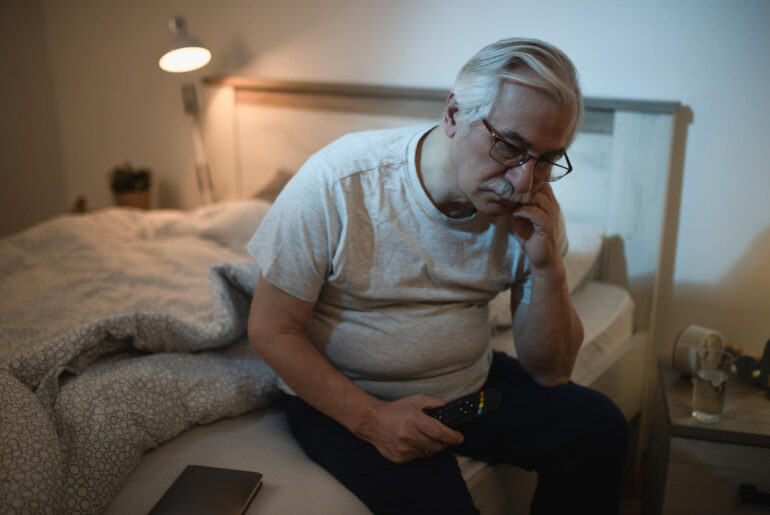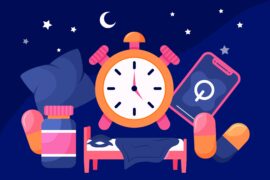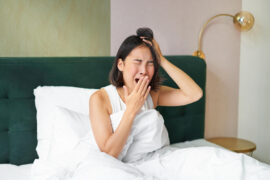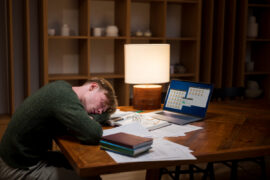Excessive daytime sleepiness – often referred to as EDS – is a surprisingly common condition. If you find yourself going day after day feeling incredibly sleepy, tired and just “out of it,” there’s a chance that you are suffering from excessive daytime sleepiness. Sometimes, you may even find yourself nodding off at strange times, although not in the same way you would if you were narcoleptic.
One of the biggest clues that you might be suffering from excessive daytime sleepiness is if you feel the constant urge or need to take naps throughout the day. An occasional nap is perfectly normal, but if you seem to want a lot of naps nearly every single day – despite getting plenty of sleep – you may be dealing with excessive daytime sleepiness. Diagnosing the problem can help you start getting treatment for it, to get your life back on track.
What is excessive daytime sleepiness (EDS)?
Basically, excessive daytime sleepiness is a constant sense of being sleepy – like you could easily take a nap at any given moment. Many times, people mistake excessive daytime sleepiness with having a cold or a flu, except the symptoms persist for far longer than usual. Other times, people think that changes in their life have simply made them more tired, when they are actually dealing with excessive daytime sleepiness.
It is important to note that the constant urge to take naps or go to sleep during waking hours is not natural, and that it definitely signifies a problem if it happens over a long period of time. Excessive daytime sleepiness is relatively common, but often goes undiagnosed since people have a basic misunderstanding about what it is and since its symptoms can be confused with other things.
Symptoms of excessive daytime sleepiness
One of the strongest characteristics of excessive daytime sleepiness is the strong urge to go to sleep even when engaged in important tasks, such as driving. Narcolepsy is a form of excessive daytime sleepiness; like narcolepsy, people suffering from this condition might take frequent naps during the day to cope with the sense of being extremely sleepy. Many times, the urge to sleep gets stronger and stronger throughout the day.
With excessive daytime sleepiness, the level of exhaustion simply doesn’t agree with the amount of sleep a person is getting at night; many people with excessive daytime sleepiness get a full eight hours of sleep and still grapple with these symptoms. If you find yourself turning in for naps often, you may have excessive daytime sleepiness.
Excessive daytime sleepiness treatments
Most of the time, people who are diagnosed with excessive daytime sleepiness are prescribed various drugs to treat it. However, there are other ways of coping with it as well. Most notably, people with excessive daytime sleepiness can use various forms of therapy to get to the underlying causes of their condition.
Extreme cases of excessive daytime sleepiness, though, usually do require professional care and typically end up requiring medication. As with any other medication, though, those prescribed to treat excessive daytime sleepiness can come along with negative side effects and may result in dependence or addiction. If you prefer to avoid prescriptions and chemicals, you may be able to find relief for your excessive daytime sleepiness through natural sleep aids.
Getting a good night’s rest
Sometimes, excessive daytime sleepiness can be handled simply by consistently getting a good night’s rest. If you aren’t getting a good night’s rest and are showing the signs of excessive daytime sleepiness, you should try a few proven strategies.
Maintaining a regular schedule can be tremendously helpful in these situations, as can avoiding caffeine, nicotine and alcohol. Keeping your room dark, cool and comfortable can help you get a good night’s sleep and help ward off excessive daytime sleepiness. Beyond all of that, though, sleep aids can be very beneficial in managing excessive daytime sleepiness. Natural sleep aids can help you get a full, rejuvenating night of sleep and can keep EDS at bay. You can learn about the most effective sleep aids by referring to the product reviews.




